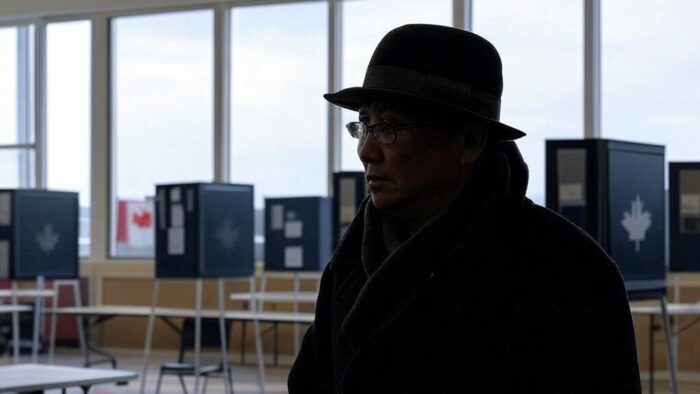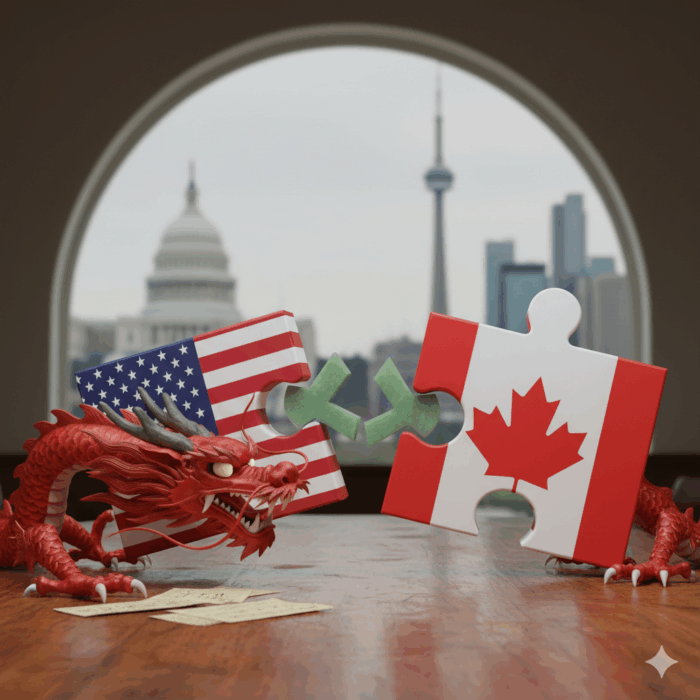China and Russia once again tried to interfere in Canada’s latest federal election but likely had minimal impact on the vote that was ultimately free and fair, according to the foreign interference in elections watchdog. On 2 October 2025, National Post reported that the Security and Intelligence Threats to Elections Task Force detected small-scale efforts from foreign entities to influence the vote but concluded that none of the foreign campaigns ultimately impacted voting nationally or locally in a meaningful way. The article begins:
China and Russia once again tried to interfere in Canada’s latest federal election but likely had minimal impact on the vote that was ultimately free and fair, said the foreign interference in elections watchdog. “While foreign actors attempted to undermine it, it did not affect the integrity of the election. There were no significant security incidents observed during the election, no cyber threats and no incidents of violent expression,” Security and Intelligence Threats to Elections (SITE) Task Force spokesperson Laurie-Anne Kempton told reporters Thursday. SITE — composed of the RCMP, Canadian Security Intelligence Service, Communications Security Establishment and Global Affairs Canada — is tasked with monitoring federal elections for foreign interference.
Key Points
- The SITE Task Force detected small-scale efforts from foreign entities, including transnational repression, inauthentic and coordinated amplification of web content, and online scams using politicians’ likenesses during the election.
- During weekly briefings, SITE warned the public of two separate online campaigns that appeared backed by the Chinese government, including inauthentic boosting of posts about Prime Minister Mark Carney on WeChat and information about a bounty on Conservative candidate Joseph Tay.
- Russia made mild attempts to influence public online discourse by leveraging its foreign information manipulation networks through websites that laundered and amplified aggregated items from Russian government-controlled media outlets about Canadian candidates.
- The report stated that foreign interference is becoming harder to detect as techniques become more sophisticated and subtle, with threat actors likely adapting their tradecraft to conceal their activity further.
Russia and China Election Interference in Canada: Disinformation Campaigns Target Democratic Processes
Russian and Chinese interference in Canadian elections has escalated dramatically through coordinated social media campaigns, AI-enabled disinformation, and targeted operations against diaspora communities. Canadian security agencies uncovered two Beijing-led social media campaigns during the 2025 federal election targeting Liberal Leader Mark Carney and Conservative candidate Joe Tay via WeChat. The Youli-Youmian account, WeChat’s most popular news source, believed to be linked to China’s Communist Party, along with 30 smaller accounts, spread both positive and negative content about Carney, while mock “wanted” posters targeted Tay for his criticism of Beijing’s Hong Kong policies.
Chinese operations demonstrate sophisticated long-term strategies extending across multiple election cycles. During the 2021 federal election, Chinese Communist Party-aligned actors undermined Conservative leader Erin O’Toole through threats published in the state-owned Global Times tabloid, warning that “China will pay back with a strong counter strike and Canada will be the one to suffer” if Conservatives adopted their anti-China platform. The Chinese Ministry of Foreign Affairs attacked political leaders through statements posted on the Chinese Embassy website, criticizing Canada’s human rights record, while pro-Beijing organizations targeted individual candidates like British Columbia MP Jenny Kwan for her support of Hong Kong pro-democracy protests and asylum measures for Hong Kongers.
Russian disinformation operations have achieved alarming penetration into Canadian information ecosystems through amplification by domestic actors. Toronto Metropolitan University research found that 51% of Canadians encountered pro-Kremlin propaganda about the Ukraine war, with the most prevalent claim that “Ukrainian nationalism is a neo-Nazi movement” reaching 35% of the population. Significantly, between 49–64% of right-leaning Canadians support pro-Russian claims, including beliefs that the United States operates biological weapons labs in Ukraine and that Kyiv spreads doctored atrocity photos.
A University of Calgary analysis of 6.2 million tweets revealed that approximately 25% of accounts in the Canadian Twitter ecosystem discussing the Ukraine war were spreading pro-Russian talking points, with many Canadians serving as unwitting “Trojan horses” amplifying narratives originating from Russia, China, or right-wing American influencers. The research confirmed that the Russian state apparatus controls numerous accounts tweeting in Canada, influencing posts that get retweeted and repeated across networks while expressing claims that Ukraine is fascist or that NATO expansion threatens Russia.
Canadian intelligence agencies warn that artificial intelligence has fundamentally transformed interference capabilities, with hostile actors deploying AI-generated deepfakes, automated account creation, and industrial-scale content generation. The Communications Security Establishment assessed that China, Russia, and Iran will “very likely” use AI-enabled tools to interfere with democratic processes, with Beijing employing vast AI capabilities to push narratives favoring its interests while targeting Chinese-diaspora communities specifically. More than a quarter of global elections between 2023 and 2024 experienced AI-driven interference attempts compared to just one identified in the previous two years, demonstrating exponential growth in sophisticated manipulation techniques that create deepfake photos, videos, and audio while enabling automated social media operations that spread disinformation at an unprecedented scale without human involvement.
External References:
— Canada warns of election threats from China, Russia, India and Pakistan — Al Jazeera
— 2025 federal election ‘very likely’ to be target of AI meddling by China, Russia and Iran — Globe and Mail
— China, Russia will ‘very likely’ use AI to target Canadian voters — CBC News
— Update on Canada’s Actions to Protect General Election 45 — Government of Canada
— Foreign disinformation is a looming threat in Canada’s election — Globe and Mail
Disclaimer:
The Global Influence Operations Report (GIOR) utilizes AI throughout the posting process, including the generation of summaries for news items, introductions, key points, and, often, the “context” section. We recommend verifying all information before use. Additionally, all images are generated using AI and are intended solely for illustrative purposes. While they represent the events or individuals discussed, they should not be interpreted as real-world photography.










